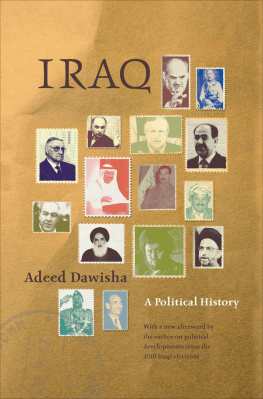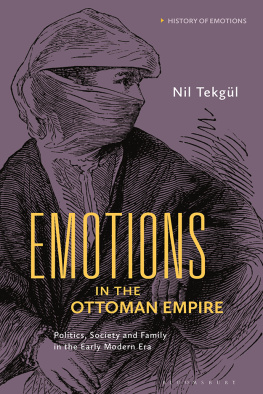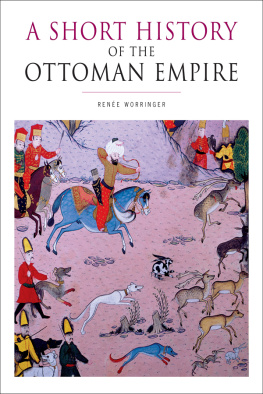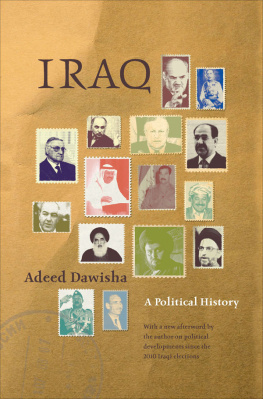Dawisha - Iraq: a political history
Here you can read online Dawisha - Iraq: a political history full text of the book (entire story) in english for free. Download pdf and epub, get meaning, cover and reviews about this ebook. City: Iraq, year: 2017;2009, publisher: Princeton University Press, genre: Politics. Description of the work, (preface) as well as reviews are available. Best literature library LitArk.com created for fans of good reading and offers a wide selection of genres:
Romance novel
Science fiction
Adventure
Detective
Science
History
Home and family
Prose
Art
Politics
Computer
Non-fiction
Religion
Business
Children
Humor
Choose a favorite category and find really read worthwhile books. Enjoy immersion in the world of imagination, feel the emotions of the characters or learn something new for yourself, make an fascinating discovery.
Iraq: a political history: summary, description and annotation
We offer to read an annotation, description, summary or preface (depends on what the author of the book "Iraq: a political history" wrote himself). If you haven't found the necessary information about the book — write in the comments, we will try to find it.
Dawisha: author's other books
Who wrote Iraq: a political history? Find out the surname, the name of the author of the book and a list of all author's works by series.
Iraq: a political history — read online for free the complete book (whole text) full work
Below is the text of the book, divided by pages. System saving the place of the last page read, allows you to conveniently read the book "Iraq: a political history" online for free, without having to search again every time where you left off. Put a bookmark, and you can go to the page where you finished reading at any time.
Font size:
Interval:
Bookmark:
IRAQ
A POLITICAL HISTORY
A POLITICAL HISTORY
Adeed Dawisha
With a new afterword by the author

Copyright 2009 by Princeton University Press
Published by Princeton University Press, 41 William Street,
Princeton, New Jersey 08540
In the United Kingdom: Princeton University Press, 6 Oxford Street,
Woodstock, Oxfordshire OX20 1TW
All Rights Reserved
First printing, 2009
Third printing, and first paperback printing, 2011
Paperback reissue, with a new afterword by the author, 2013
ISBN 978-0-691-15793-1
Library of Congress Control Number: 2012955335
British Library Cataloging-in-Publication Data is available
This book has been composed in Adobe Garamond
Printed on acid-free paper
press.princeton.edu
Printed in the United States of America
10 9 8 7 6 5 4 3 2 1
For Karen
The research for this book was facilitated by the generous support of a number of institutions. The Carnegie Foundation of New York selected me as a Carnegie Scholar for the academic year 20042005. Freed from teaching and administrative duties, I was able to devote myself fully to the project. Indeed, during that year, the bulk of the research for the book was done. A travel grant from Miami Universitys Philip and Elaina Hampton Fund for Faculty International Initiatives allowed me to undertake two trips to Lebanon to work in the extensive archives of the Jafet Library of the American University of Beirut (AUB). I am grateful to AUBs President, Professor John Waterbury, his office, and the staff of the library for facilitating my work in that great institution. I spent many dusty hours in the Department of Special Collections, situated in the basement of the library, consulting Iraqi archives that extended all the way back to the early 1920s. I was also able to secure a grant for the summer of 2006 from the American Academic Research Institute in Iraq (TAARII), which allowed me to write Chapters Four, Five and Six, and thus complete the analysis of the monarchical period.
I also wish to thank members of my graduate class in 2005 and 2006 who contributed to my own understanding of the conceptual bases of the book. David Rashid, a young undergraduate, offered to help with research for the book during the spring semester of 2006. In thirty years of research and writing, I had never used research assistants, but David was insistent and I took him on, and he did not disappoint.
In some parts of the manuscript I have drawn on material that I had published earlier in issues of the Middle East Journal and the Journal of Democracy. I am grateful to the editors and publishers of these journals for granting me permission to reprint segments of my articles in this book.
IRAQ
A POLITICAL HISTORY

This book examines the political development of Iraq from the inception of the state in 1921 to the post-2003 years of political and societal turmoil. Its premise is that from the very beginning of the state the Iraqi project in fact devolved into three undertakings: the consolidation of the state and its governing institutions, the legitimization of the state through the framing of democratic structures, and the creation of an overarching, and thus unifying, national identity. The book is different from other studies of Iraqs political history, in that it traces the development of each of the three projects of governance, democracy, and national identity separately, while at the same time highlighting the way they impacted and shaped one another.
The idea for this book took shape in the post-2003 period as I searched for answers and tried to make sense of the quagmire into which Iraq seemed to be sinking. A few months into the American occupation of the country, there were signs of a promising future: the end of a brutal tyranny, plans for a liberal constitution, hope for economic rejuvenation, and the possibility of a democratic Iraq that would become the beacon for fundamental political transformations in other Arab states, mired as they were (and still are) in authoritarian cultures and practices.
There were disquieting signs, too. The new masters, strangely un-schooled in the complexities of the land over which they now held dominion, seemed unable to understand the nuances of the country they were supposed to administer. The Department of Defense had focused its energies and resources on winning the war against Saddam Husayns army, but once that task was brilliantly accomplished in April 2003 the administrators of the victorious power dealt ineptly with ensuing post-war problems. Indeed, they contributed to these problems by implementing a number of imprudent policies. One such policy was the disbanding of the Iraqi armed forces, which left a dangerous security void that was quickly filled by enemies of the new political order.
There can be little doubt that in the initial crucial months after toppling Saddam valuable time was wasted by the American administration in Iraq. While the civilian and military administrators dithered and meandered, Bathist diehards and disaffected officers, who had been in total disarray at the end of the military campaign, found time to organize against the new order. To the surprise of those who had followed the deliberate build up toward the war, the United States seemed to lack a comprehensive plan for the development and reconstruction of the country which the administration had promised, and indeed had intended, to embark immediately upon. As the American effort began to stall, and the promise of a rejuvenated Iraq began to fade in the face of administrative ineptitude and indigenous violence, even those Iraqis who initially had welcomed the forcible removal of Saddams procrustean dictatorship would soon begin to eye the American endeavor with mounting frustration. Later on, a few years of futility would turn frustration into outright hostility.
The hope that handing over sovereignty to the Iraqis in the summer of 2004 would steer the country back onto the path of purposeful governance and peaceful political development would soon dissipate as successive governments, first appointed by the Americans, later elected by the Iraqis, would fail in the most rudimentary functions of governance. Indeed, five years into the new era, the living conditions of Iraqis had sunk into an abyss of misery and malcontent.its citizens, with the result that in the perceptions of Iraqis, state institutions would recede almost into irrelevance.
But the predicament of post-2003 Iraq could not be confined only to the seeming failure of the state in discharging its basic responsibilities. Concomitant with the efforts by the Americans and their Iraqi allies to establish and cement the authority of the state, the results of which were middling at best, were two other projects: maintaining an internally cohesive social order and thereby sustaining an overarching national identity, as well as creating durable democratic institutions. As for the former, there were disturbing signs early in the occupation of a visible and vociferous rise of ethnosectarian loyalties as the primary elements of identity. The communal divide would soon become violent, spreading in scope with the passage of time, and the conflict would shift from a confrontation between the American forces and the Resistance to intracommunal violence in which Sunnis and Shiites shed the blood of one another with seemingly carefree abandon. This inevitably would lead to the flight of over 2 million Iraqis to neighboring countries, and perhaps a million or so others displaced inside the country, as internal cross-migration accelerated in response to either targeted attacks and threats, or peoples propensity to be with their own folk in situations of pervasive violence and fear. What ensued was a country largely divided along ethnosectarian lines. Even the capital city, Baghdad, which had always been viewed and portrayed as the archetypal melting pot of Iraqs various communities, became, five years into the new era, a perceptibly divided city with its eastern neighborhoods predominantly Shiite, and its western areas mainly Sunni.
Next pageFont size:
Interval:
Bookmark:
Similar books «Iraq: a political history»
Look at similar books to Iraq: a political history. We have selected literature similar in name and meaning in the hope of providing readers with more options to find new, interesting, not yet read works.
Discussion, reviews of the book Iraq: a political history and just readers' own opinions. Leave your comments, write what you think about the work, its meaning or the main characters. Specify what exactly you liked and what you didn't like, and why you think so.







